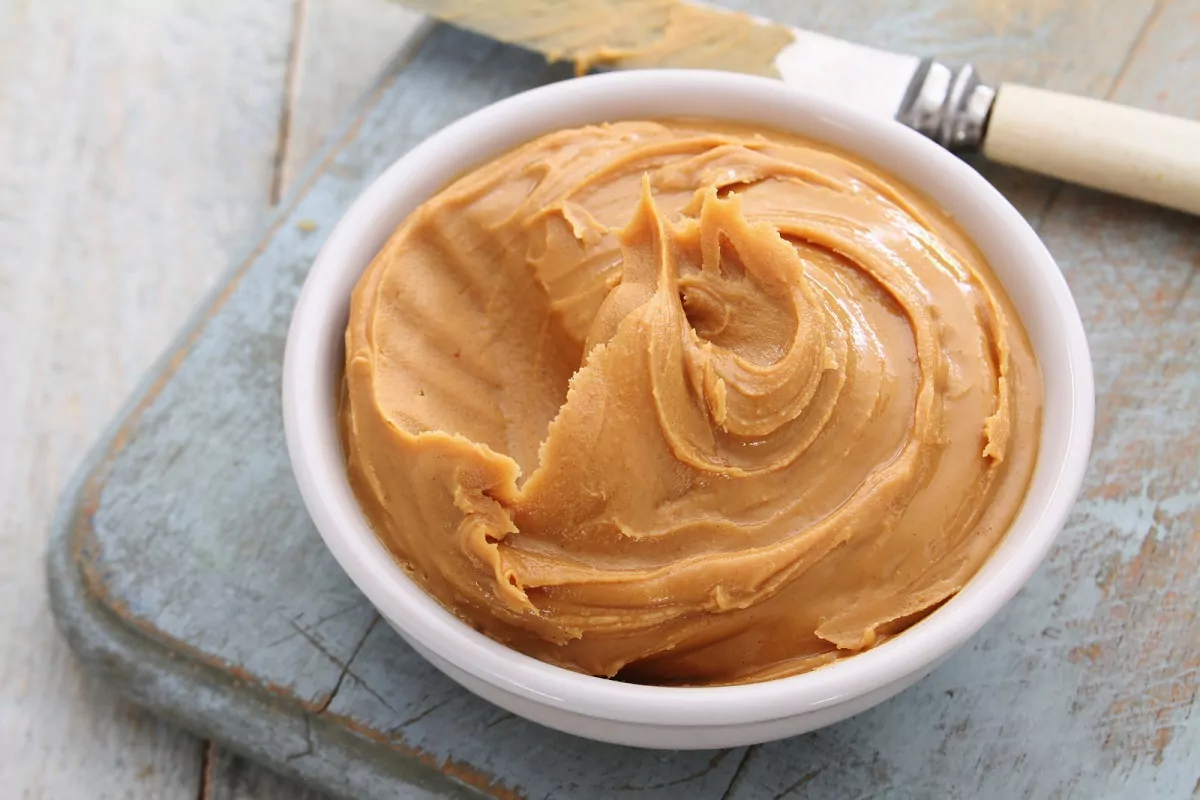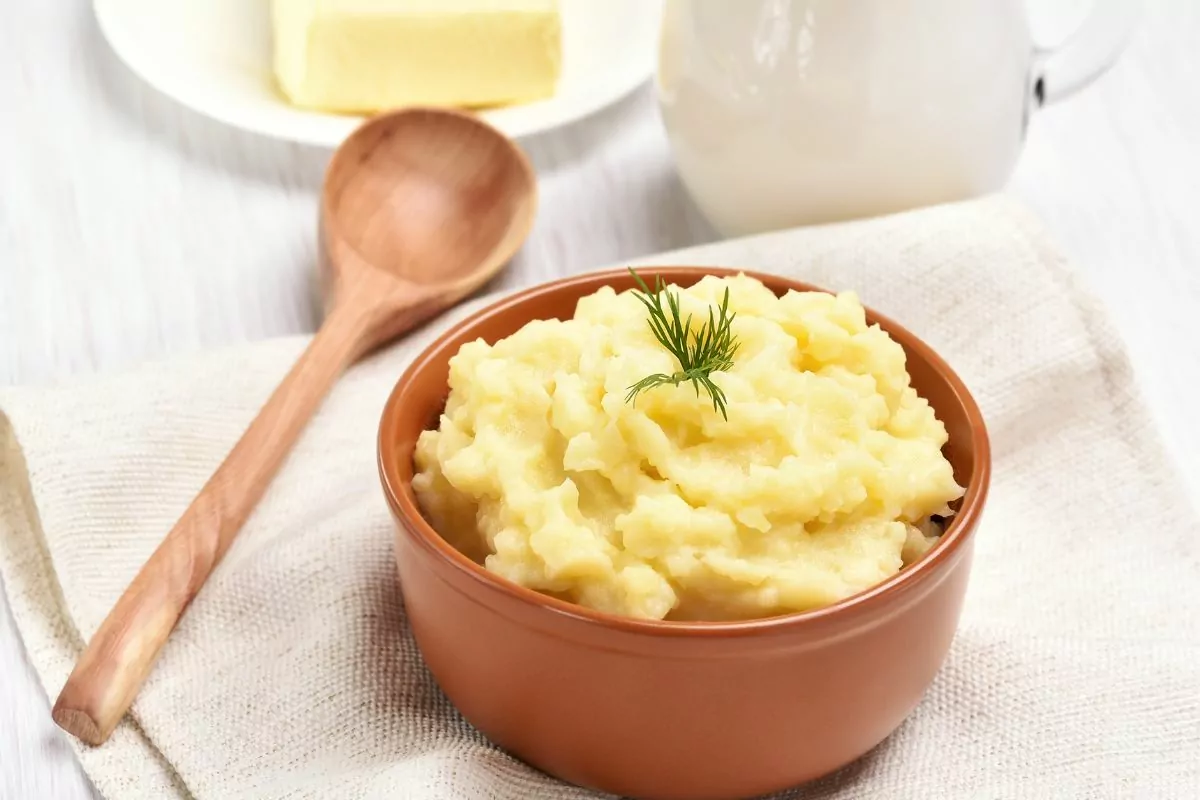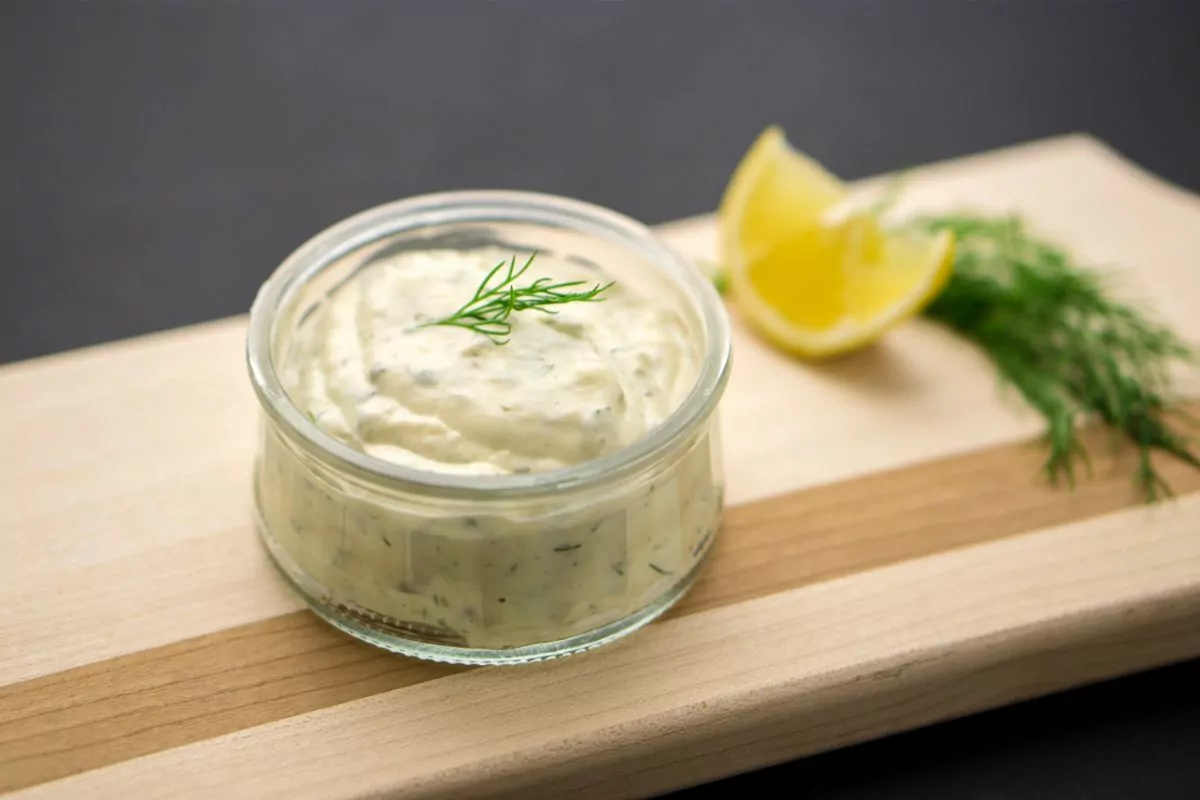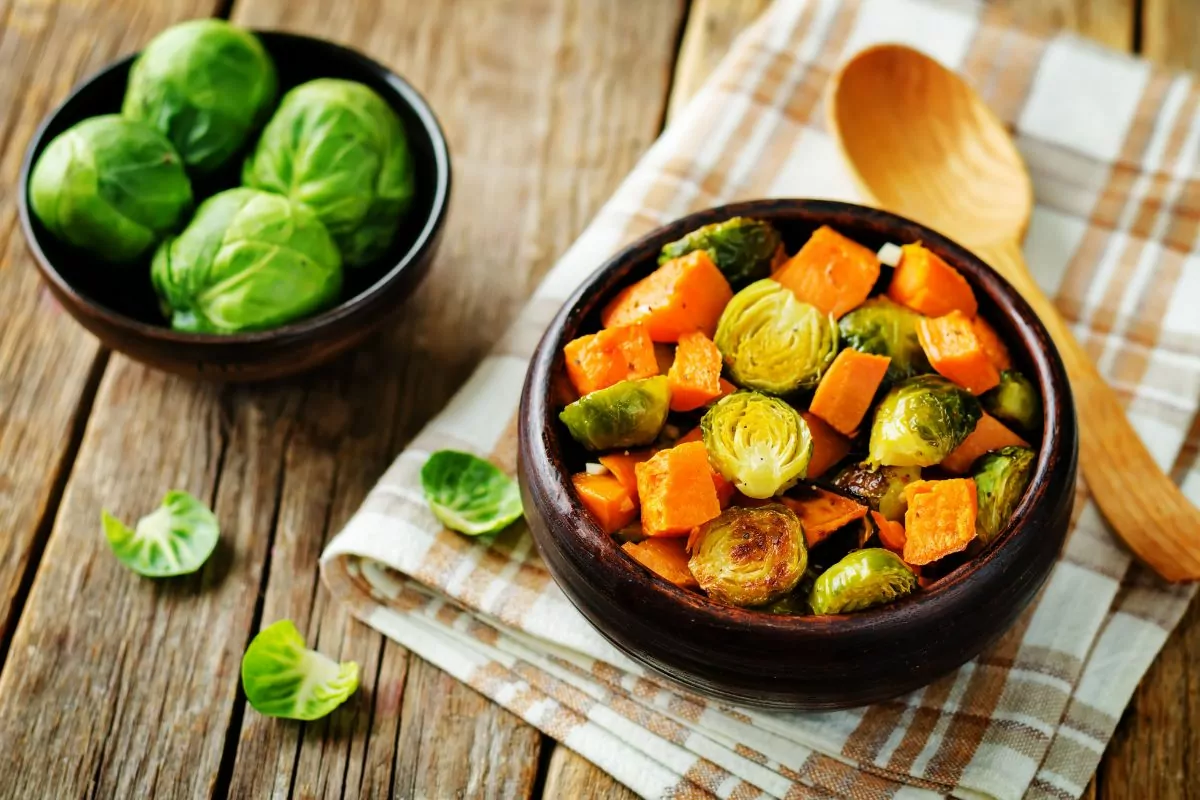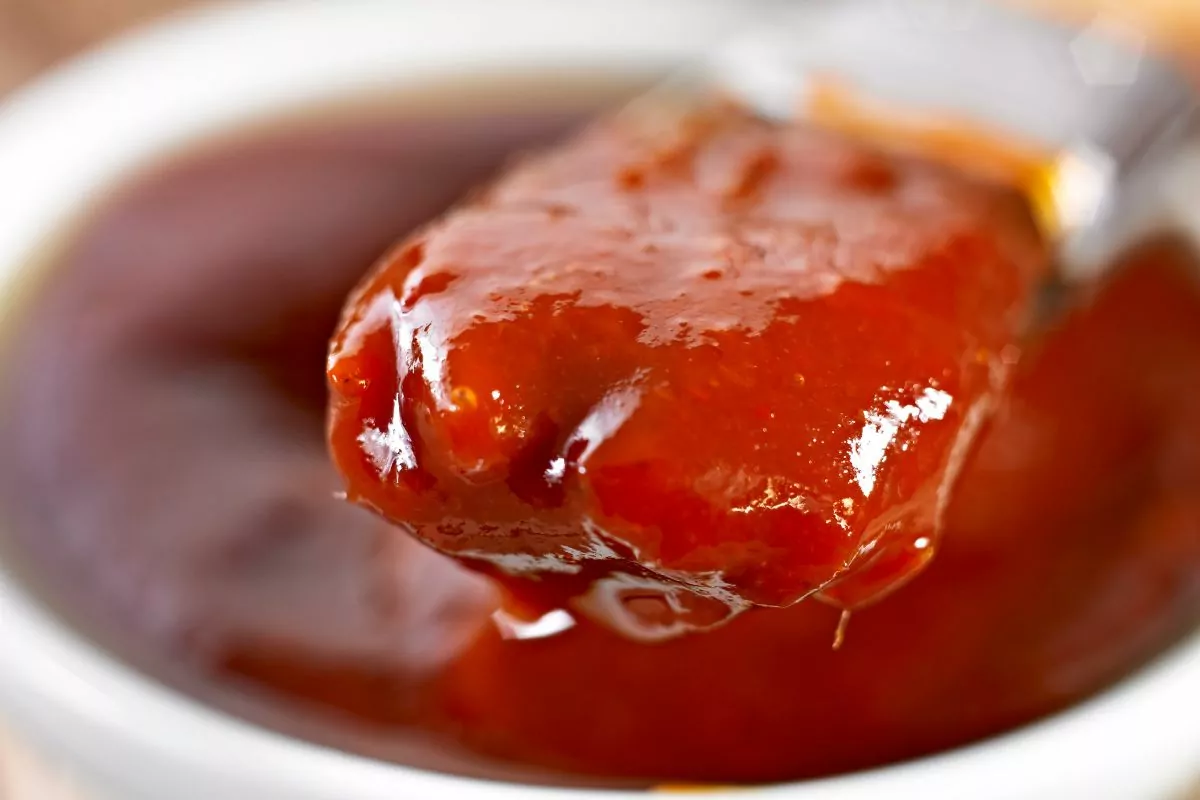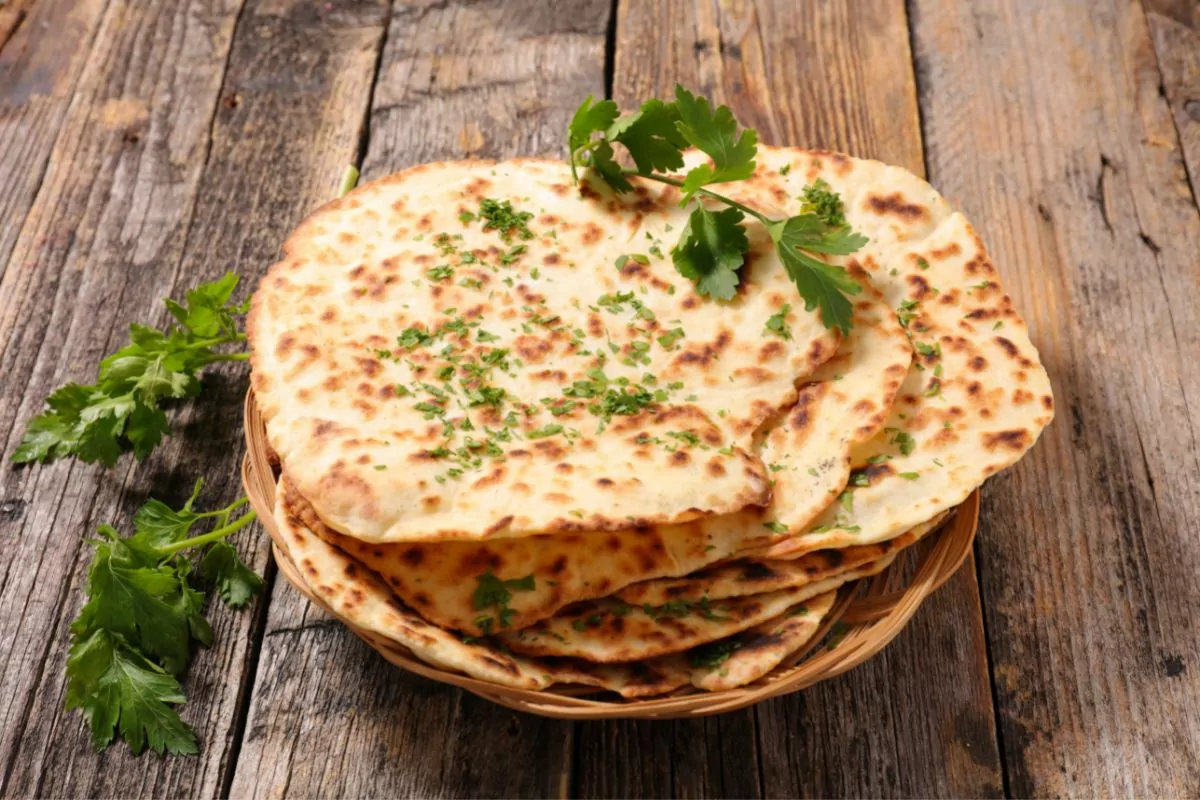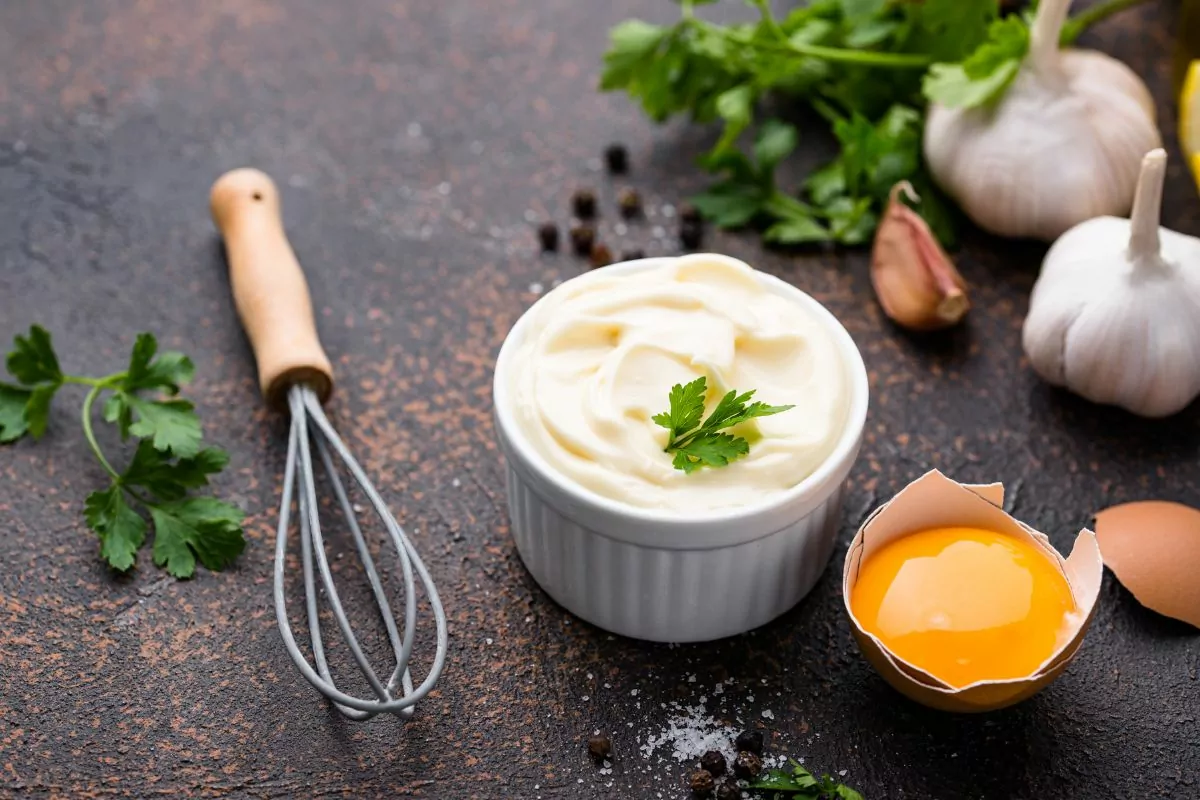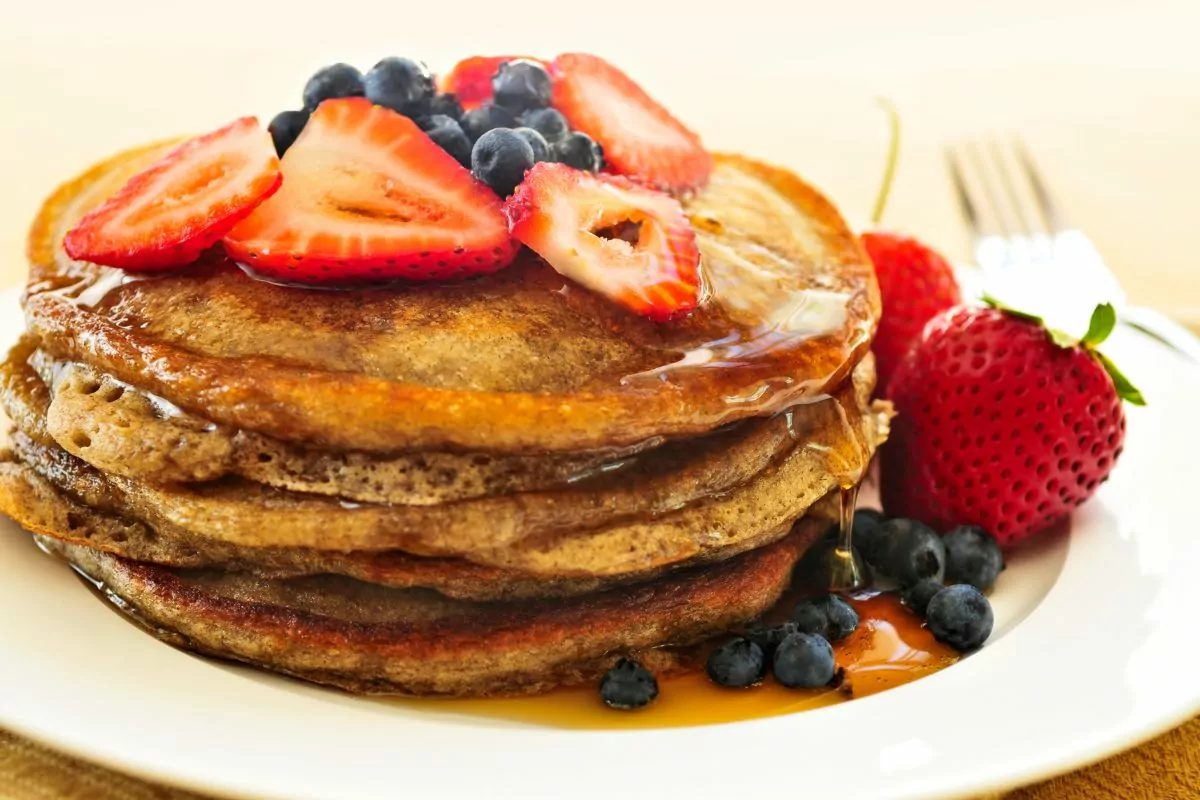Olive oil is one of the most commonly used cooking oils available on the market.
When you’re frying some vegetables, roasting some potatoes, or drizzling it over a salad – olive oil is incredibly versatile.
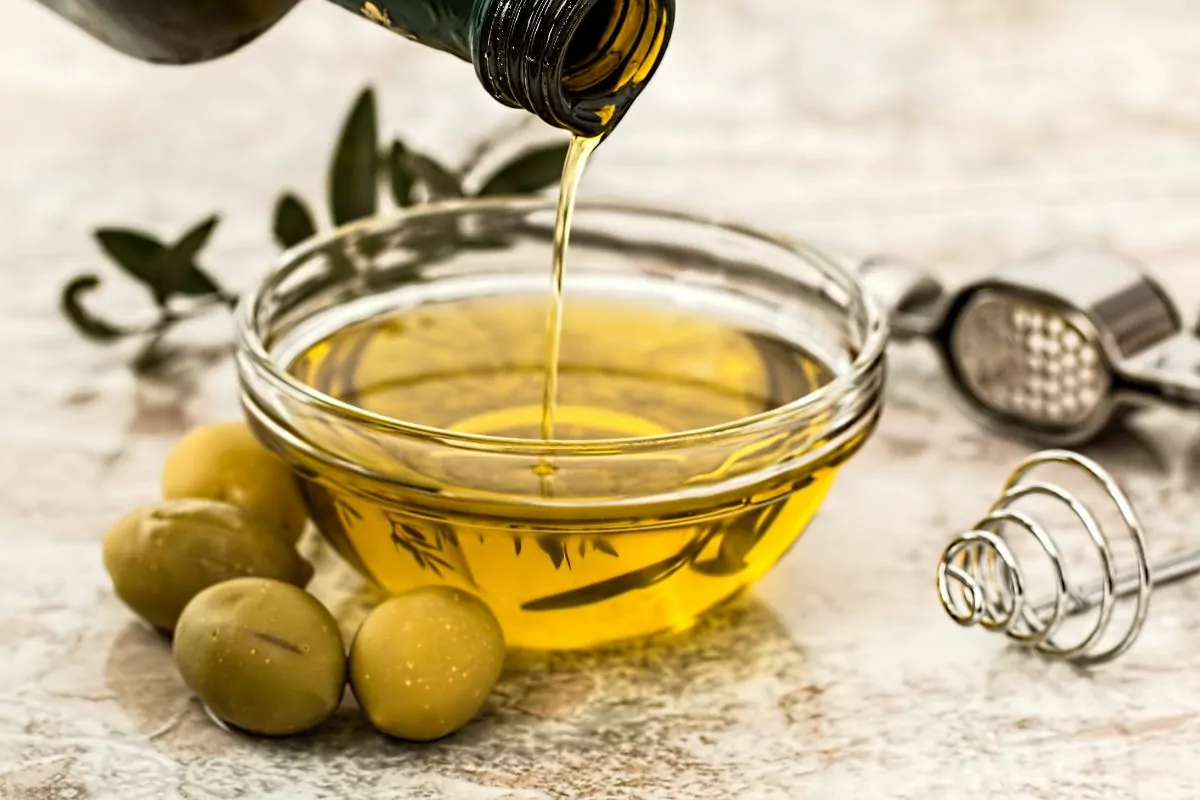
Although, despite its popularity, the question remains: is olive oil vegan?
Well, the short answer is yes! Vegans can eat olive oil.
With this in mind, this article will be exploring everything you need to know about olive oil’s role in a vegan diet.
What Is Olive Oil?
As previously mentioned, olive oil is incredibly versatile and can be used in various ways, including in cooking and salad dressings.
As its name suggests, olive oil is made from olives – a fruit found in the Mediterranean Basin.
Since olive oil contains monounsaturated fatty acids (MUFAs), it is considered a healthy fat.
How Is Olive Oil Made?
Olive oil is composed of the grinding of olives to extract the oils found inside them.
Firstly, ripe olives are ground into the form of a paste, which is then spread onto fiber disks.
After this, pressure is applied to separate the vegetable liquid from the original paste.
Contrary to popular belief, significant water remains in the liquid.
Traditionally, the oil would be separated from the water using gravity.
However, this is a time-consuming process. Asa result, the process known today is called centrifugation.
As opposed to oil and water, the centrifuges have opposing exit points. A lot of supervision is needed for this step.
Olive oil shouldn’t contain any traces of water since this can accelerate the process of organic degeneration.
Hence, oils produced in smaller mills tend to be avoided due to their containing water deposits.
What Does ‘Extra Virgin’ Mean?
Extra virgin olive oil is known as the highest quality of olive oil available.
This is the result of the olive oil not being treated or refined with high temperatures and chemicals.
Therefore, an unrefined olive oil will contain more natural minerals and vitamins, with a truer olive taste.
Likewise, extra virgin olive oil also contains 1% of oleic acid. With a low smoke point, the particular oil burns at a low temperature.
Is Extra Virgin Olive Oil Vegan?
It is indeed. Similar to normal olive oil, extra virgin olive oil is also composed of olives without using animal by-products.
Therefore, making it a great choice for vegans.
Additionally, extra virgin olive oil contains high levels of monounsaturated fats and low levels of polyunsaturated and saturated fats – making it a healthy fat to incorporate into your diet.
Is Olive Oil Healthy?
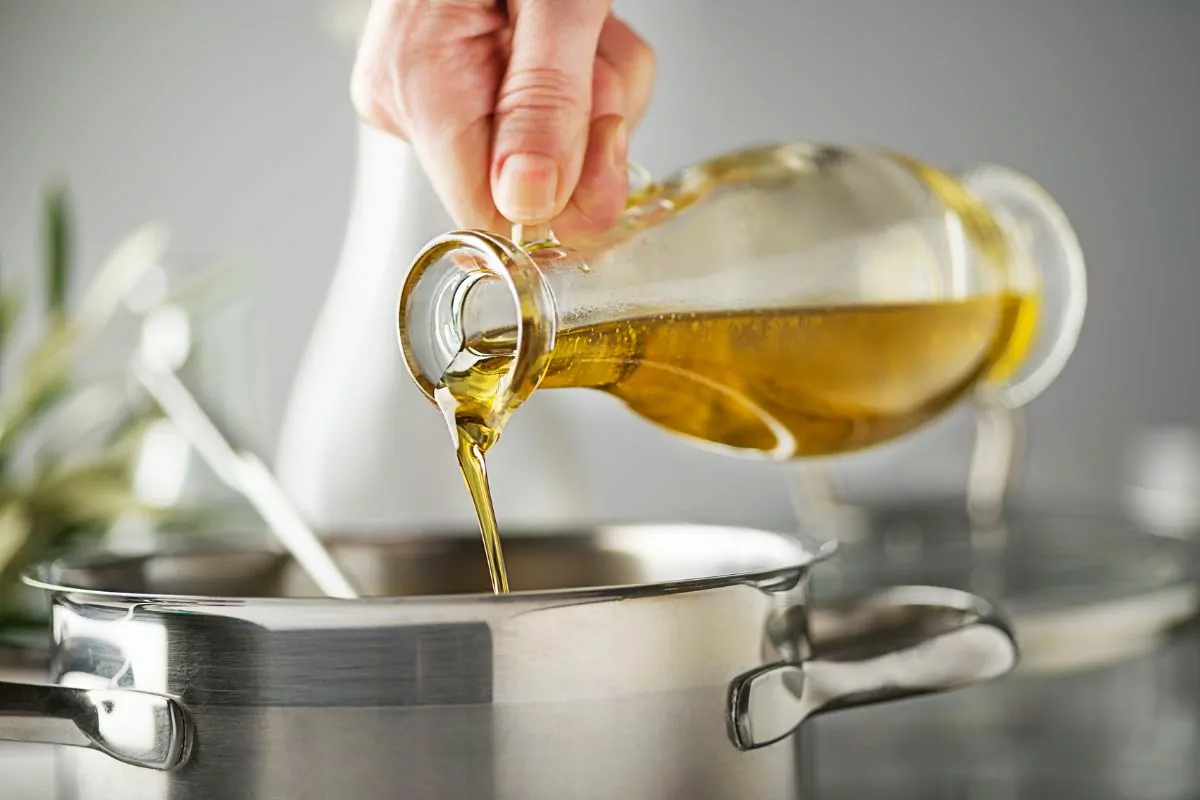
Considered one of the healthiest oils, below, you will find some benefits of incorporating olive oil into your diet.
- Antioxidants – Olive oil contains high levels of antioxidants; great for preventing chronic illnesses – with vitamins E and K.
- Monounsaturated fat – Olive oil contains high levels of monounsaturated fats (MUFAs) which are essentially healthy fats. Studies have shown oleic acid to help in reducing inflammation.
- Antibacterial properties – A study found that within just 2 weeks, extra virgin oil can eliminate Helicobacter pylori infections.
- Protective against type 2 diabetes – In a random trial involving 418 healthy people, olive oil’s protective effects were showcased. In the same study, it was shown to reduce the risks of developing type 2 diabetes.
Vegan Olive Oil Brands
While olive oil is known to be healthy, finding a brand to trust can be sometimes difficult.
You’ll want to ensure that you’re receiving the maximum amount of health benefits.
To help you do so, we have noted a few olive oil brands below; that you can trust without a doubt!
1. Corto Truly
This is a popular and trusted olive oil brand among vegans. Likewise, it is also certified by the California Olive Oil Council (COOC).
2. California Olive Ranch
California Olive Ranch is known for its cold-pressed olive oils that contain various flavor profiles suitable for a range of dishes – ranging from sweet to savory.
3. Kirkland Signature Organic Extra Virgin Olive Oil
If you’re looking for a cold-pressed olive oil that adds a beautiful taste to both your foods and salads, then you can’t go wrong with the Kirkland Signature Organic Extra Virgin Olive Oil.
Alternatives To Olive Oil
While olive oil is among the healthiest oil to incorporate into your meals, you may be searching for other vegan-friendly options to add to your meals. Some include:
- Peanut oil – This is a common oil used in Asian cuisine. It contains a hint of nutty flavor while having a high smoke point, allowing it to handle very high temperatures.
- Sunflower oil – If you’re looking for a good alternative to olive oil, then you can’t go wrong with sunflower oil. It’s a light oil that contains anti-inflammatory properties.
- Coconut oil – For many vegan chefs, coconut oil has become the go-to oil to use in dishes. Whether you’re roasting or frying, coconut oil is a great alternative. Unlike olive oil, you can use coconut as a raw ingredient in desserts and cakes (You might be insterested in checking out Are Donuts Vegan?).
- Walnut oil – Similar to peanut oil, walnut oil contains a high level of monounsaturated fats. As you would expect, it contains a nutty taste as it’s composed of crushed walnuts – resulting in a thick texture.
- Canola oil – Also known as rapeseed oil, canola oil is composed of pressed canola seeds. These are cheap to grow; however, they don’t contain much nutritional value – primarily used for deep-fat frying.
Final Thoughts
Olive oil is an essential ingredient for many dishes that require roasting and drying.
If you’re a vegan, you’ll be glad to know that olive oil is 100% vegan-friendly.
In addition to being suitable for vegans, it also contains many health benefits – there’s no reason you shouldn’t be incorporating olive oil into your meals, especially when used as a dressing!
Hopefully, this guide has informed you on everything you need to know about olive oil and its role in a vegan diet.
- Cucumber, Apple And Pineapple Juice - September 12, 2022
- French Toast Without Eggs - September 12, 2022
- Cook Canned Chickpeas - September 12, 2022

